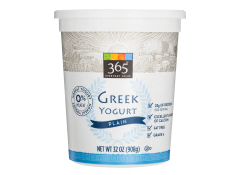
More research highlights the importance of having a robust gut microbiome—the collection of good bacteria that live in our digestive systems.
Called probiotics, these good bacteria help break down food, synthesize vitamins, prevent bacteria that cause illness from getting a foothold, and bolster immunity. Some studies suggest that as we get older, the number and variety of good bacteria in our bodies decline. So taking probiotic supplements to replenish them might seem like a no-brainer.
Indeed, 14 percent of people 55 and older use them, according to a recent survey from the Council for Responsible Nutrition, an industry group. But in doing so, they may be getting ahead of the science.
"It's been proposed—but not proven—that regular probiotic intake may help prevent this change [with age]," says Emeran A. Mayer, M.D., a professor of medicine and psychiatry at the David Geffen School of Medicine at UCLA and author of "The Mind-Gut Connection" (Harper Wave, 2016). "We're just starting to scratch the surface of this area of research."
Here's what we know now about the potential impact probiotics may have on our health.
Can Probiotics Boost Health?
"Some strains have been shown to help with GI complaints, some with immune function, and some even have been shown to have benefits outside the intestinal tract, such as with vaginal health or eczema," says Gail Cresci, Ph.D., R.D., a Cleveland Clinic researcher who studies the microbiome. But there are few definitive conclusions from the current research.
One of the most common reasons people take probiotics is to help rebuild the microbiome after a course of antibiotics, because the drugs kill good bacteria along with the bad. But there may be a downside, according to a new study published in the journal Cell.
"Surprisingly, our research found that the consumption of probiotics after antibiotics can actually delay the natural restoration of the gut microbiome," says Eran Elinav, M.D., Ph.D., an author of the study and a professor of immunology at the Weizmann Institute of Science in Israel.
Some experts think that probiotics may need to be personalized to be beneficial.
Another study by Elinav and his colleagues suggests that not everyone's gut reacts the same way to probiotic pills. They studied samples of microbiomes from antibiotic users before and after they took supplements for four weeks. The good bacteria were found in the digestive tracts of some people. But in others, the bacteria were present only in stool samples, not in their digestive tracts, where they're thought to be needed to improve health.
Are Probiotic Pills Safe?
Makers of probiotics (and all supplements) don't have to prove to the Food and Drug Administration that their products are safe and effective before they're marketed.
And a recent study in the Annals of Internal Medicine sounded an alarm about the lack of scientific proof to support their safety.
"You are taking in live bacteria, so it's possible that certain people may be vulnerable to infection from it and not able to fight it off," Cresci says.
While serious side effects are unlikely in healthy people, those who are immune-compromised, elderly, or critically ill in particular should consult a doctor before taking these supplements.
Get Healthy Bacteria From Food
"If you eat a diet rich in plant-based and fermented foods, you will be ingesting a variety of microbes," says Mayer at UCLA. "And the more you feed them, the greater their abundance and diversity in the gut." What do they eat? Fiber called prebiotics. Some good sources are artichokes, asparagus, garlic, onions, and whole grains.
But with a supplement, you consume the bacteria in isolation, Cresci says.
If you get your good bacteria in fermented foods such as yogurt and sauerkraut, you'll also get their beneficial byproducts, such as acids and enzymes.
Editor's Note: This article also appeared in the January 2019 issue of Consumer Reports On Health.

















